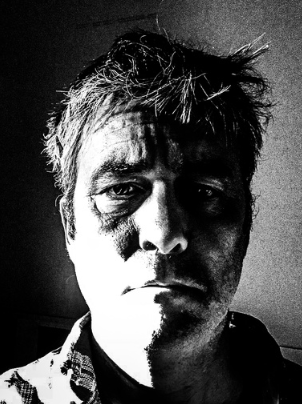
Welcome to our first virtual event as part of 1455’s ongoing Author Series. A shout out to our friends at Handley Library in downtown Winchester, where we usually have these monthly events, in person.
By way of introduction, I’d like to start by wishing everyone as much health and happiness as it’s possible to convey. It seems that so much of our world has ground to a halt, and standard operating procedures rightly went out the window. But as part of our mission to produce as much free content and programming as possible, it seems that there’s never been a more appropriate or necessary time to explore and celebrate the myriad ways art can provide distraction, solace, and inspiration.
I can’t think of a better person to kick off this evolving vision of 1455’s outreach than my dear friend Justen Ahren. In fact, without Justen, and his friendship and example, it’s hard to imagine 1455, and all that’s happened since 2017, would be possible. I met Justen when he was in charge of the Noepe Center for Literary Arts, which he founded and ran for over a decade. I was there, first for a two-week residency in 2015, and then as writer in residence and manager in 2016. As this conversation will make abundantly clear, I’m a fan of Justen, the artist, and Justen, the human being.
Obligatory Bio: Martha’s Vineyard Poet Laureate, Justen Ahren, is the author of a previous collection of poems, A Strange Catechism. He is founder and director of Noepe Center for Literary Arts and the Italy Writing Workshop. Ahren is also a photographer. His current project, A Machine for Remembering, from which the photos in this book are drawn, focuses on refugees and refugee landscapes. To read more poetry and view photographic work, visit justenahren.com, and follow him on Instagram and Facebook, @justenahren.
Two of his poems, below, followed by a video of our recent conversation.
Curfew and Pears
i.
A blue evening like this one
when the soldiers come
everyone is quiet at first
then we lie about our neighbors
for bread for shoes
you do what you must.
A fat housefly taps the window
on a blue evening like this one
a cello sits in the corner
missing its strings.
After supper we walk by the river
under the pears about flower
between blackened statues
men fish from a bridge
women gather firewood,
water and rumors —
the approaching footsteps
of an occupation.
A blue evening like this one
when the soldiers come
we forget happiness is
cheering the pears
hurling petals
at tanks in the street.
A Machine for Remembering
How We Arrive at Now
Words sow me to the land.
I don’t know if I am good,
but I am beginning to understand
the violence I’ve been given,
the lies I’ve agreed to share,
the gestures of the dead,
the objects they’ve handled
and have broken with their labors
and their affection. For this world
I must try to articulate
how fingers wore handles of shovels
and footsteps ground
paths from small rooms
to river crossings and stations,
where the people have prayed
to see those they are missing:
the lives staggering like flames and leaning away.
I’ve been given to weep for them,
though it’s no longer legal.
I don’t want to leave them
words only, daydreams
but what their bodies have trapped,
their own private trees.

